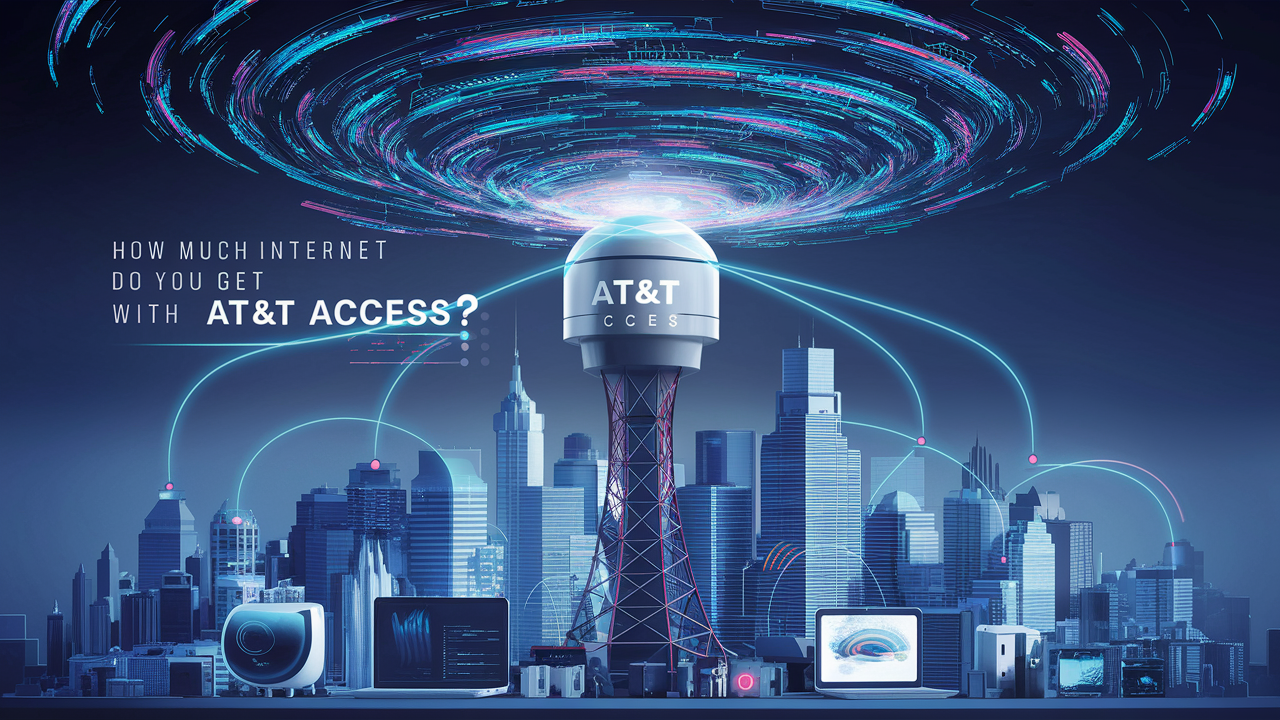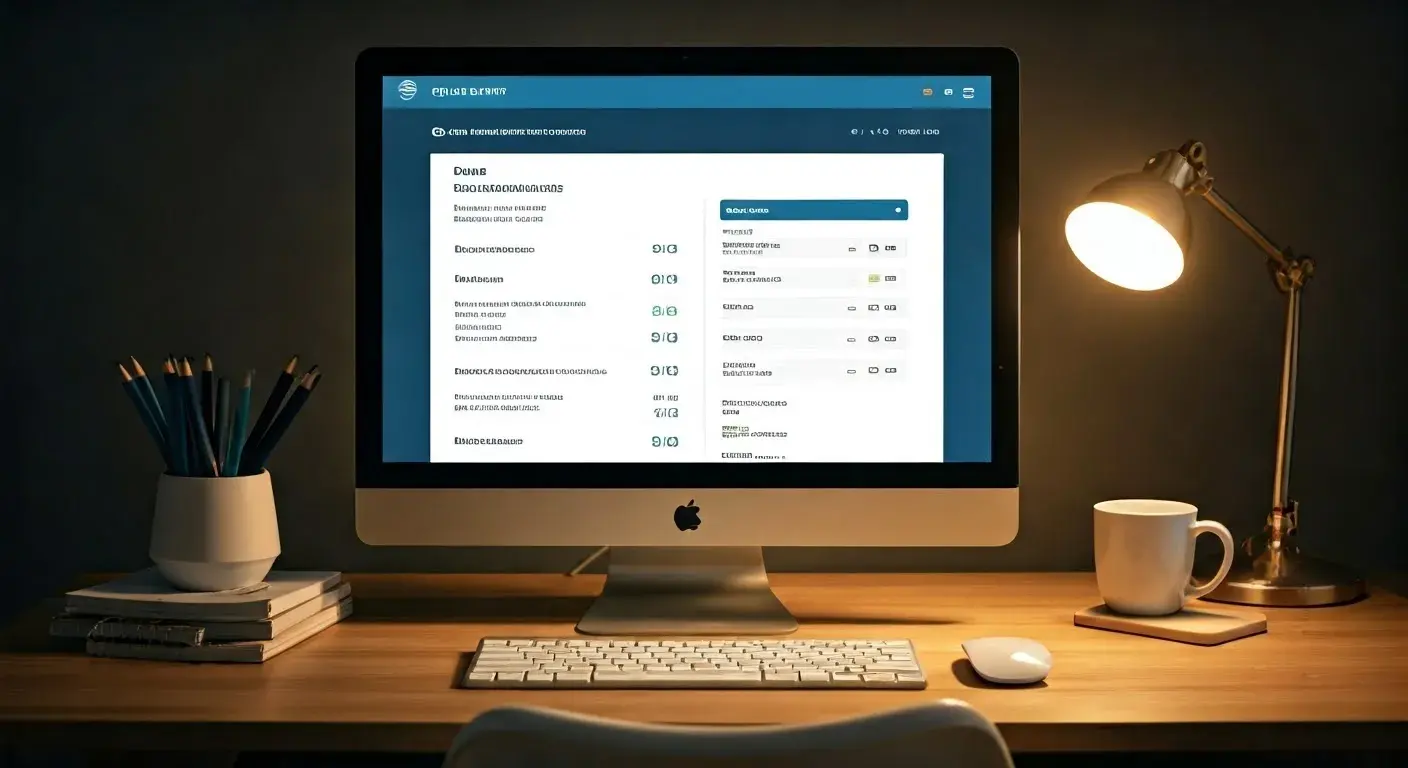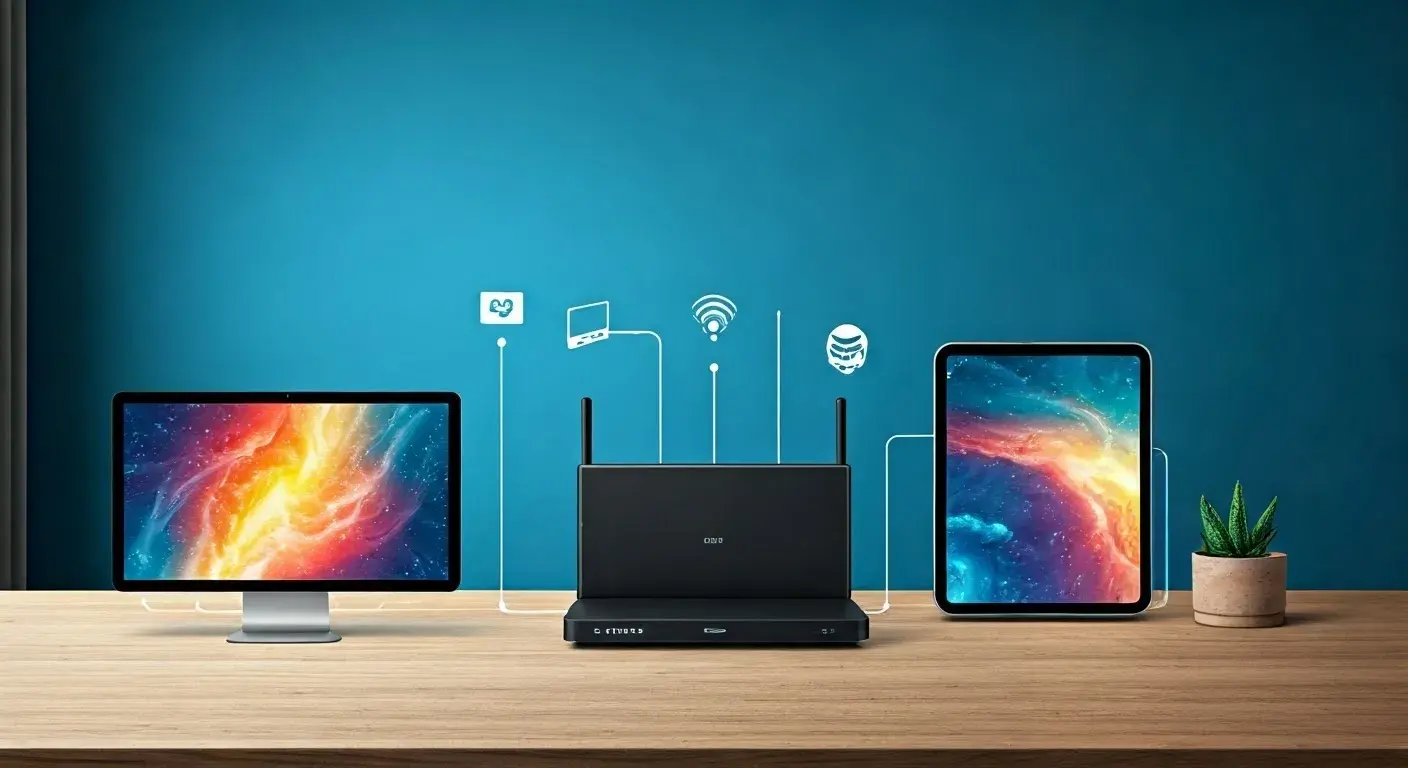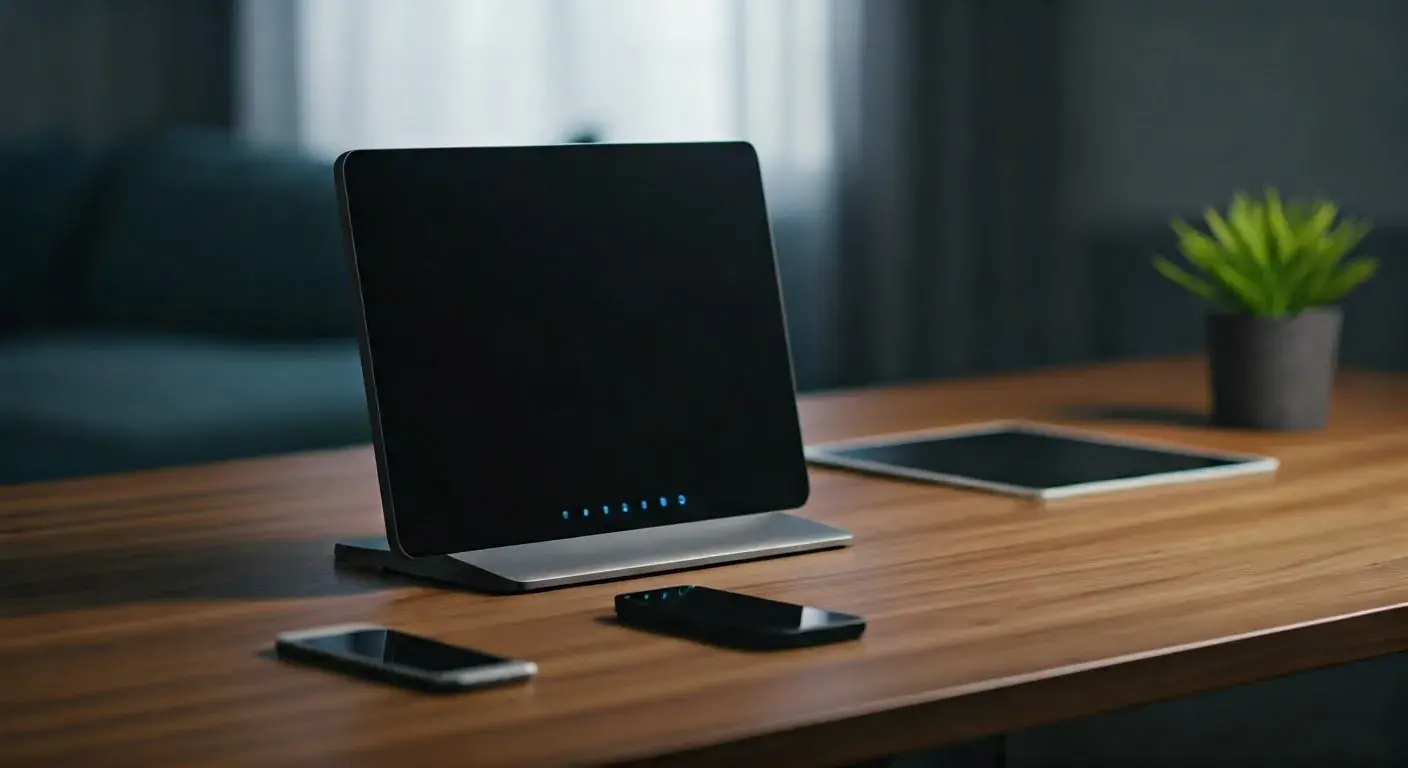What Exactly is AT&T Access? Unpacking the Offering
When you're looking into internet service, the name "AT&T Access" might pop up. But what does it really mean in terms of the internet you receive? Unlike traditional plans that often advertise specific download and upload speeds, AT&T Access is primarily known as AT&T's program designed to offer affordable internet access to qualifying low-income households. This means the focus is less on raw data volume or lightning-fast speeds and more on providing a foundational internet connection for essential online activities.
It's crucial to understand that AT&T Access isn't a standard, one-size-fits-all internet package. Instead, it's a lifeline program. This distinction is key because it influences the data allowances, speeds, and features you can expect compared to AT&T's higher-tier internet offerings. For many users, the question "How much internet do you get with AT&T Access?" translates to "What are the practical limitations and capabilities of this low-cost service?"
In 2025, AT&T continues to evolve its programs. While the core mission of AT&T Access remains to bridge the digital divide, the specifics of what "access" entails can vary slightly based on your location and the specific iteration of the program available. We'll delve into the typical data and speed parameters to give you the clearest picture.
Understanding Data Allowances: The Core Question for AT&T Access
The most direct answer to "How much internet do you get with AT&T Access?" often revolves around data allowances. In the past, and in many current iterations of similar low-income programs, providers might implement data caps to manage network resources and keep costs down. However, AT&T Access has historically focused on providing a reliable, albeit not high-performance, connection without strict data caps for its eligible customers.
This is a significant differentiator. Many internet providers, even for their standard plans, impose monthly data limits. Exceeding these limits can result in throttled speeds, extra charges, or even service interruption. For AT&T Access, the emphasis is on making the internet usable for everyday tasks.
Key takeaway for 2025: While AT&T Access plans are generally designed with unlimited data for eligible households, it's always wise to verify the specifics with AT&T directly. Network management practices can sometimes apply, meaning extremely heavy usage might be subject to deprioritization during peak times, but outright data caps are typically not a feature of this program.
Instead of a hard data cap, AT&T Access focuses on delivering a connection suitable for:
- Browsing websites
- Checking email
- Using social media
- Streaming standard-definition video
- Online learning and remote work essentials
The amount of "internet" you get is therefore less about a numerical data limit and more about the quality and speed of the connection provided.
AT&T Access Internet Plans 2025: A Detailed Breakdown of What's Offered
AT&T Access is a specific program, not a tiered set of plans like AT&T Internet plans (e.g., Internet 300, Internet 500). The "internet" you get is defined by the service provided under the Access umbrella. In 2025, AT&T Access typically offers:
- Download Speeds: Generally, speeds for AT&T Access are in the range of up to 100 Mbps download. This is a significant upgrade from older dial-up or very low-speed DSL services and is sufficient for many households.
- Upload Speeds: Upload speeds are typically lower, often around 5 Mbps. This is adequate for sending emails with attachments or basic video calls but might be a bottleneck for heavy video conferencing or uploading large files.
- Data: As mentioned, these plans are generally advertised with unlimited data.
- Equipment: A modem or gateway is usually provided, often at no additional monthly charge, which is a common perk for low-income assistance programs.
- Price: The program is designed for affordability, with pricing often being very competitive, sometimes even free for qualifying households under specific federal programs like the Affordable Connectivity Program (ACP), if AT&T participates.
The Role of the Affordable Connectivity Program (ACP) in 2025
It's impossible to discuss AT&T Access without mentioning the Affordable Connectivity Program (ACP). The ACP is a U.S. government benefit that helps eligible low-income households pay for internet service and connected devices. In 2025, AT&T participates in the ACP.
How it impacts AT&T Access:
- Households eligible for ACP can receive a discount of up to $30 per month towards their internet service.
- For AT&T Access plans that already offer low pricing, the ACP discount can make the service free or significantly reduced.
- This makes the "amount of internet" you get with AT&T Access even more valuable, as the cost barrier is substantially lowered.
Important Note: The ACP is subject to government funding. While it's active in 2025, future availability can change. Always check the latest status of the ACP and AT&T's participation.
What "Up to 100 Mbps" Really Means
The "up to" in speed specifications is crucial. This means you might not always receive the full 100 Mbps. Your actual speeds can be affected by:
- Network Congestion: During peak hours (evenings, weekends), more users in your area are online, which can slow down speeds for everyone.
- Home Wi-Fi Setup: The quality of your router, its placement, and the number of devices connected can impact speeds within your home.
- Distance from Node: For some DSL-based connections, distance from the local network hub can affect performance.
- Type of Connection: AT&T Access may utilize different technologies (DSL, Fiber where available) depending on your location, with fiber offering more consistent speeds.
For AT&T Access, expect speeds that are generally stable for basic tasks but may fluctuate during high-demand periods.
How Much Internet Is Enough for Your Household in 2025?
The question of "how much internet" is highly personal. With AT&T Access, you're typically getting a solid foundation. Let's break down what that means for different household needs:
For Basic Online Activities (Email, Browsing, Social Media)
If your household primarily uses the internet for checking emails, browsing news sites, staying active on social media, and occasional online shopping, AT&T Access is more than sufficient. The speeds are more than adequate, and the unlimited data means you won't have to worry about usage.
For Streaming Video (Netflix, YouTube, etc.)
This is where "how much internet" becomes more nuanced.
- Standard Definition (SD): Requires about 3 Mbps. AT&T Access (up to 100 Mbps) can easily handle multiple SD streams.
- High Definition (HD): Requires about 5 Mbps per stream. You should be able to stream HD content on 1-2 devices simultaneously.
- 4K Ultra HD: Requires 25 Mbps or more per stream. Streaming 4K content on multiple devices might strain the AT&T Access connection, especially if other bandwidth-intensive activities are happening concurrently.
Recommendation: For a household that streams HD video regularly, AT&T Access should perform well for 1-2 simultaneous streams. If 4K streaming or multiple simultaneous HD streams are a priority, you might need to consider AT&T's higher-tier plans, assuming you qualify for Access and it meets your budget.
For Online Gaming
Online gaming is sensitive to both download speed and, more critically, latency (ping). While AT&T Access's download speeds (up to 100 Mbps) are generally fine for downloading games, the upload speed (around 5 Mbps) and potential latency issues on DSL-based connections could be a limiting factor for competitive online gaming.
Consideration: For casual gaming, AT&T Access might be acceptable. For serious gamers who demand low latency and fast reaction times, higher-speed plans, preferably fiber-optic, are recommended.
For Remote Work and Online Learning
This is a critical area in 2025. AT&T Access can support many remote work and learning needs:
- Video Conferencing (Zoom, Teams): Basic participation in video calls is usually fine. However, extensive hosting of meetings, screen sharing large files, or participating in very high-quality video sessions might push the limits of the 5 Mbps upload speed.
- Downloading/Uploading Documents: Standard document sizes are easily handled. Large file transfers might be slow, especially uploads.
- Accessing Cloud-Based Applications: Most cloud apps will function well.
Verdict: AT&T Access is suitable for essential remote work and learning tasks. If your job or studies involve frequent large file uploads/downloads or high-definition video conferencing for extended periods, you might find the upload speed to be a constraint.
Real-World Usage Scenarios: What Can You Actually Do with AT&T Access?
Let's put the speeds and data allowances into practical terms. How much internet do you get with AT&T Access when you're actually using it?
Scenario 1: The Average Family
Mom and Dad are browsing news and checking email. Teenager is on TikTok and YouTube (HD). Younger child is doing homework online and occasionally streaming cartoons.
AT&T Access Performance: This scenario is generally well-supported. The combined bandwidth usage for browsing, social media, and HD streaming on 1-2 devices should stay within the 100 Mbps download capacity. Uploads for homework submissions will also be fine.
Scenario 2: The Remote Worker
One person works from home, attending multiple Zoom meetings daily, sharing their screen, and accessing cloud-based project management tools. Their partner streams Netflix in the evening.
AT&T Access Performance: This can be borderline. The download speed is usually sufficient for streaming. However, the 5 Mbps upload speed might become a bottleneck during peak meeting times, leading to choppy video or audio for the remote worker. If they need to upload large project files, it will be slow.
Scenario 3: The Gamer & Streamer Household
One person is playing an online multiplayer game requiring low latency. Another is streaming a 4K movie on a smart TV. A third person is video calling family.
AT&T Access Performance: This is where AT&T Access will likely struggle. The 4K stream alone demands significant bandwidth. The online gaming latency might be too high. The video call could also be affected by overall network congestion. This setup would benefit greatly from higher-speed plans.
Scenario 4: The Student Household
Multiple students are taking online classes, downloading course materials, submitting assignments, and participating in video lectures. They might also stream educational videos or use online research tools.
AT&T Access Performance: This is a strong use case for AT&T Access. The speeds are adequate for most educational tasks, and the unlimited data is a huge advantage for students who might otherwise be hesitant to download large files. Upload speeds should be sufficient for assignment submissions.
Managing Your AT&T Internet Usage Effectively in 2025
Even with unlimited data on AT&T Access, managing your usage can lead to a smoother experience, especially if network congestion is a factor. Here's how:
- Optimize Streaming Quality: If you're not actively watching a 4K movie, consider setting your streaming services to HD or even SD quality. This uses significantly less bandwidth and can free up capacity for other devices or activities.
- Schedule Large Downloads/Uploads: If you need to download large files (e.g., software updates, game patches) or upload large documents, try to do it during off-peak hours (late night or early morning) when network congestion is typically lower.
- Monitor Your Network: Use your router's interface or a network monitoring app to see which devices are consuming the most bandwidth. This can help identify unexpected usage or apps running in the background.
- Update Your Wi-Fi Router: If you're using an older router, it might be a bottleneck. Ensure your router supports current Wi-Fi standards (like Wi-Fi 5 or Wi-Fi 6) for better in-home distribution of your internet signal. AT&T typically provides a compatible modem/gateway with Access plans.
- Limit Background Apps: Close applications and browser tabs that you're not actively using, as some may continue to consume data in the background.
- Use Ethernet When Possible: For critical devices like gaming consoles or work computers, a wired Ethernet connection is generally more stable and faster than Wi-Fi.
Competitor Comparison: AT&T Access vs. Other Low-Income Programs in 2025
To truly understand "how much internet" you get with AT&T Access, it's helpful to see how it stacks up against similar offerings from other providers and general internet plans.
| Feature | AT&T Access (Typical 2025) | Comcast Internet Essentials (Example) | Spectrum Internet Assist (Example) | Standard AT&T Internet (e.g., 300 Mbps) |
|---|---|---|---|---|
| Target Audience | Low-income households, ACP eligible | Low-income households, ACP eligible | Low-income households, ACP eligible | General consumers |
| Download Speed | Up to 100 Mbps | Up to 50 Mbps | Up to 300 Mbps (often bundled) | 300 Mbps+ |
| Upload Speed | Up to 5 Mbps | Up to 5 Mbps | Up to 10 Mbps (often bundled) | Up to 10 Mbps (or more on higher tiers) |
| Data Cap | Unlimited (generally) | Unlimited (generally) | Unlimited (generally) | Unlimited (generally, but check terms) |
| Monthly Price (with ACP) | Potentially $0 - $30 | Potentially $0 - $30 | Potentially $0 - $30 (for the base tier) | $60 - $100+ (before discounts) |
| Best For | Essential online tasks, HD streaming, basic remote work/learning | Basic browsing, email, limited streaming | Moderate usage, streaming, some remote work | Heavy streaming (4K), gaming, multiple users, demanding remote work |
Analysis:
- Speed: AT&T Access often provides a competitive download speed (up to 100 Mbps) compared to some other low-income programs like Comcast's Internet Essentials (typically 50 Mbps). Spectrum's Internet Assist might offer higher speeds but often comes as a bundle or has different eligibility.
- Data: The unlimited data allowance is a common and crucial feature across these programs, ensuring users aren't penalized for normal usage.
- Value: When combined with the ACP discount, AT&T Access offers exceptional value, potentially making internet service free for eligible households.
- Comparison to Standard Plans: The difference in speed and upload capability between AT&T Access and AT&T's standard plans is substantial. If your needs exceed basic internet use, upgrading to a higher-tier plan is necessary, though it will come at a higher cost.
Content Gap Identified: Many competitor analyses focus solely on price and basic speed. They often miss detailing real-world implications of upload speeds for remote work and the nuances of "up to" speeds versus consistent performance, which is critical for users to understand "how much internet" they are truly getting.
Troubleshooting and Optimizing Your AT&T Access Connection
If you feel like you're not getting the "internet" you expect from AT&T Access, or if your connection seems slower than it should be, here are some troubleshooting steps:
- Restart Your Modem/Gateway: This is the simplest and often most effective fix. Unplug the power cord, wait 30 seconds, and plug it back in.
- Check Your Connections: Ensure all cables (coaxial, Ethernet) are securely plugged into your modem, router, and wall outlets.
- Test Speed Directly Connected: Connect a computer directly to the AT&T modem/gateway using an Ethernet cable. Run a speed test (e.g., Speedtest.net, Fast.com). This bypasses your Wi-Fi and shows your raw internet speed. If speeds are still low, the issue might be with AT&T's service.
- Test Wi-Fi Speed in Different Locations: If direct connection speeds are good but Wi-Fi is slow, your Wi-Fi signal might be weak. Test speeds closer to the router and further away to identify dead spots.
- Reduce Network Load: Temporarily disconnect some devices from your network and re-test speeds to see if a single device or application was hogging bandwidth.
- Update Device Software: Ensure your computer, smartphone, or tablet has the latest operating system and browser updates.
- Contact AT&T Support: If you've tried these steps and are still experiencing issues, it's time to contact AT&T. Explain the troubleshooting you've already done. They can check your line, modem status, and diagnose network issues from their end.
Optimization Tip: For better Wi-Fi coverage, consider placing your AT&T gateway in a central, open location in your home, away from obstructions like thick walls or large appliances.






